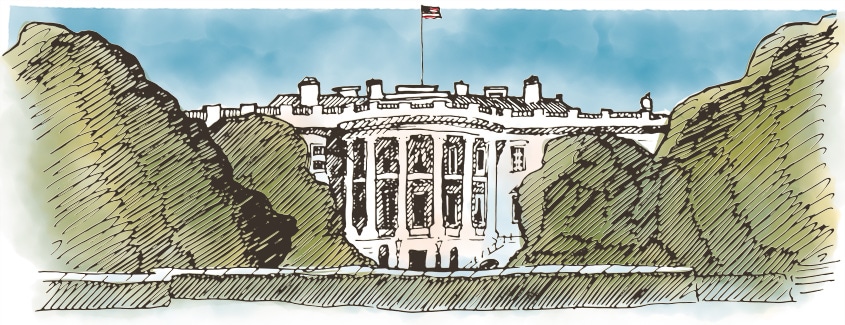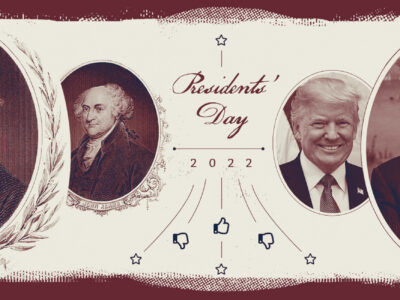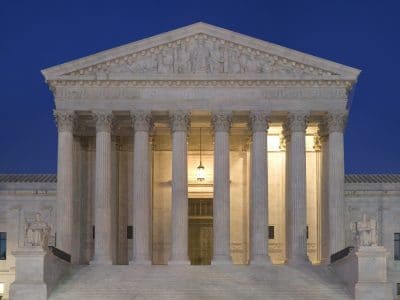
The 2021 Super Bowl fueled conversations and debate about the legacy of Tampa Bay Buccaneers’ quarterback Tom Brady. When he finally hangs up his cleats, will he be widely recognized as the GOAT—greatest of all time? Or does the title belong to San Francisco 49ers wide receiver Jerry Rice or Chicago Bears running back Walter Payton? After his impressive performance in winning his seventh Super Bowl, Brady is even being called the best ever in all sports and a living legend.
 We can endlessly debate who the best players are in other sports. In baseball, is it Babe Ruth, Ty Cobb, or Henry Aaron? Is hockey’s GOAT Wayne Gretzky, Gordie Howe, or Mario Lemieux? Who holds the title in soccer: Brazilian Pele, Argentine Diego Maradona, or Portuguese Cristiano Ronaldo? Is the greatest heavyweight boxer Joe Louis, Rocky Marciano, or Muhammad Ali? Is the best golfer of all-time Sam Snead, Jack Nicklaus, or Tiger Woods?
We can endlessly debate who the best players are in other sports. In baseball, is it Babe Ruth, Ty Cobb, or Henry Aaron? Is hockey’s GOAT Wayne Gretzky, Gordie Howe, or Mario Lemieux? Who holds the title in soccer: Brazilian Pele, Argentine Diego Maradona, or Portuguese Cristiano Ronaldo? Is the greatest heavyweight boxer Joe Louis, Rocky Marciano, or Muhammad Ali? Is the best golfer of all-time Sam Snead, Jack Nicklaus, or Tiger Woods?
Is the best tennis player in history Roger Federer, Rafa Nadal, or Serena Williams? Is Kareem Abdul-Jabbar, Michael Jordan, or Lebron James the greatest basketball player of all time? And who is the best Olympic athlete of all time: Soviet gymnast Larisa Latynina, American swimmer Michael Phelps, or Jamaican sprinter Usain Bolt? Sports fans debate whether these individuals or others are the greatest stars depending on the criteria they use and their personal preferences.
Similar debates erupt when we evaluate the performance of U.S. presidents. As we celebrate Presidents’ Day, which president is the GOAT? Is one of them a clear favorite?
For the last four decades, the Siena College Research Institute (SCRI) has led the way in ranking American presidents. The institute asks historians, political scientists, and presidential scholars to rank the presidents in 20 areas including their integrity, intelligence, willingness to take risks, court and executive appointments, domestic and foreign policy accomplishments, handling the economy, party leadership, relationship with Congress, ability to compromise and leadership skills. The SCRI has done assessments in 1982, 1990, 1994, 2002, 2010, and 2018. The SCRI does not list who its evaluators are or specify how many scholars participate.
 In all six Siena polls, the four Mt. Rushmore presidents—George Washington, Thomas Jefferson, Abraham Lincoln, and Theodore Roosevelt—along with Franklin Roosevelt, who occupied the office after the memorial was commissioned in 1925, have constituted the top five. Franklin Roosevelt (1933-45) ranked first in the first five polls and second (to Washington) in 2018. Evaluators admire his policies that helped lift the nation out of the Great Depression and provided assistance and security to workers and the elderly. His communication skills and adroit guiding of the United States during the perilous years of World War II have also been lauded. Academicians have consistently ranked Roosevelt the most effective president in leading his party and handling foreign relations.
In all six Siena polls, the four Mt. Rushmore presidents—George Washington, Thomas Jefferson, Abraham Lincoln, and Theodore Roosevelt—along with Franklin Roosevelt, who occupied the office after the memorial was commissioned in 1925, have constituted the top five. Franklin Roosevelt (1933-45) ranked first in the first five polls and second (to Washington) in 2018. Evaluators admire his policies that helped lift the nation out of the Great Depression and provided assistance and security to workers and the elderly. His communication skills and adroit guiding of the United States during the perilous years of World War II have also been lauded. Academicians have consistently ranked Roosevelt the most effective president in leading his party and handling foreign relations.
After FDR, the cumulative rankings of the six Siena polls put Washington at number 2, Lincoln at 3, Theodore Roosevelt at 4, and Jefferson at 5. George Washington (1789-97) has constantly been ranked above all his successors in moral authority, management of the economy, and overall performance given the fragility of the fledging republic and the dangers it confronted. Washington sought to prevent political division and avoid foreign entanglements and set many positive precedents, including serving only two terms.
Abraham Lincoln (1861-65) has usually been ranked second in leadership ability and third overall in the Siena survey. He is praised for preserving the Union, issuing the Emancipation Proclamation, and delivering memorable, insightful speeches, most notably the Gettysburg Address in 1863 and his Second Inaugural Address in 1865.
Theodore Roosevelt (1901-09) has been ranked very highly for his willingness to take risks. The youngest president in American history had the enthusiasm and energy to convince Congress to pass numerous progressive reforms and conducted an effective foreign policy. The avid outdoorsman also greatly expanded our national parks.
Evaluators have always ranked Thomas Jefferson (1801-09) highest in intelligence and vision. The principal author of the Declaration of Independence acquired the Louisiana Territory from France, doubling the size of the country and reduced the national debt by one third.
C-SPAN’s polls conducted in 2000, 2009, and 2017 produce different results. Its 92 participants, primarily college professors, span the political ideological spectrum. In each C-SPAN survey, Lincoln was ranked first. Washington was third, second, and second; FDR was second, third and third. Theodore Roosevelt was fourth each time, while Jefferson was seventh each time.
So, which U.S. president is the GOAT? Based on these two highly respected polls, it is a toss-up among Franklin Roosevelt, George Washington, and Abraham Lincoln.
How do other presidents, especially more recent ones, rank? Dwight Eisenhower (1953-61) is a composite sixth place in the Siena polls and ranks ninth, eight, and fifth in the three C-SPAN surveys. Ronald Reagan (1981-89) ranked 13th overall in the SCIR polls, scoring highly for his public persuasion skills and for setting the national agenda. He ranked 11th, 10th, and ninth in the three C-SPAN surveys. Barack Obama (2009-17) ranked 17th in the 2010 SCIR poll, receiving high marks for the Affordable Care Act and guiding the country through the Great Recession of 2008-9.
As we consider these rankings and debate which chief executive is the GOAT, let’s pay tribute to them all this Presidents’ Day. Their job is grueling, the pressures they face are immense, and the potential consequences of their actions are enormous. And heeding biblical admonitions, let’s pray for our presidents to make wise decisions and pursue just policies that benefit all Americans.




